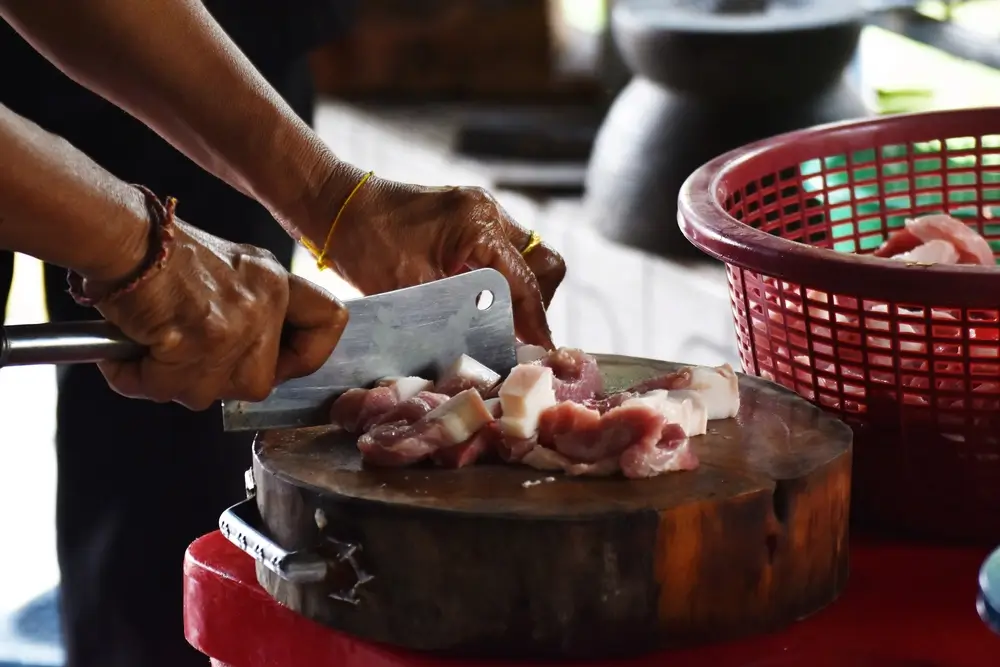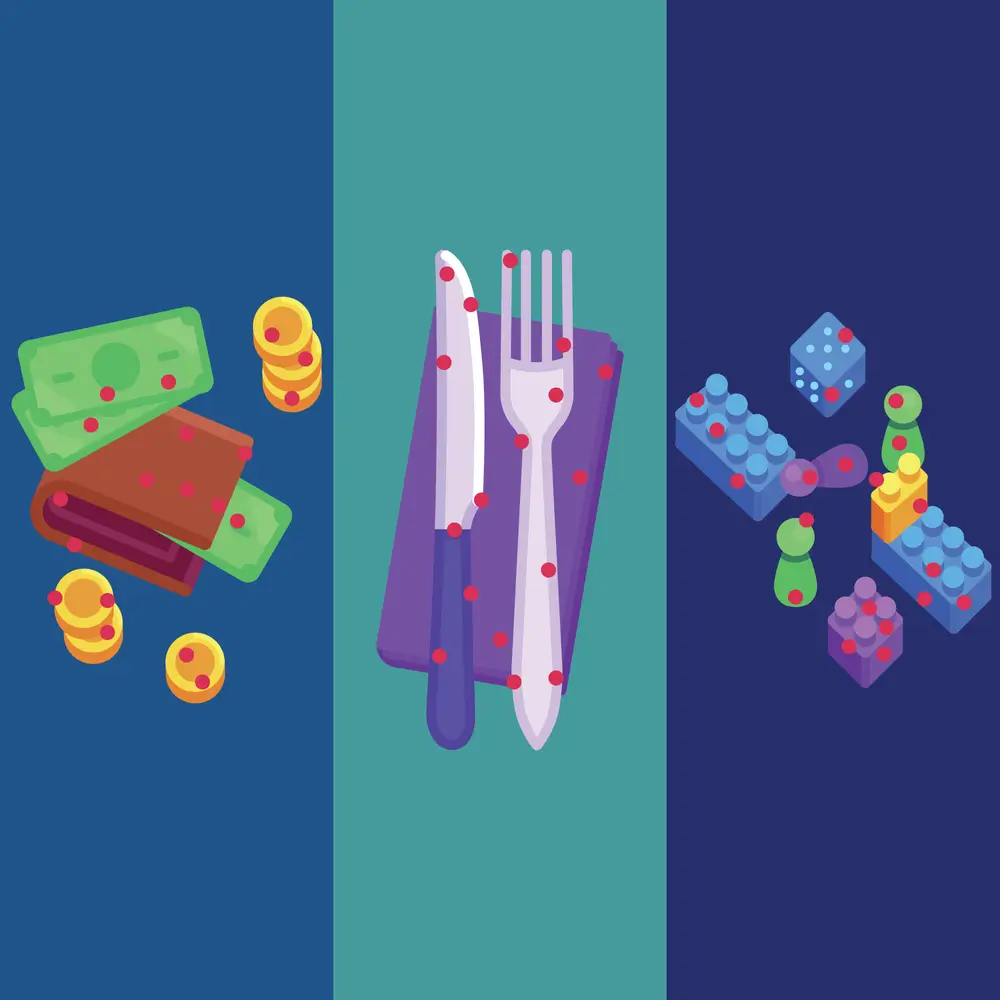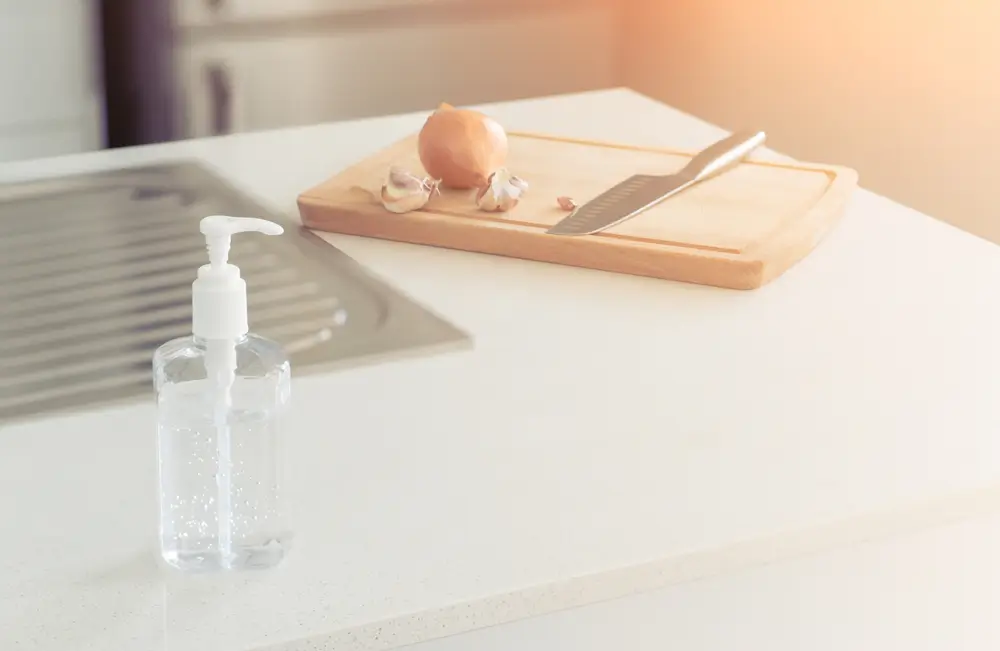Whether you are a professional chef or a home cook, it is important to keep your knives clean and sanitized. Not only does this help to prevent the spread of bacteria, but it also helps to keep your knives in good condition. With proper care, your knives can last for many years.
When must a knife be cleaned and sanitized? The simple and best answer to this question is every time after using your knife. Otherwise, after cutting through raw meat or fish, or when sharing your knives, or if you’ve recently sharpened your knife, it’s a must to clean and sanitize the knife to ensure safety and health factors.
In this blog post, we’ll explain the topic: When must a knife be cleaned and sanitized? in detail along with some other related questions about cleaning and sanitizing knives. So, let’s get deeper into the answer
When Must a Knife be Cleaned and Sanitized?
Ideally, you should clean your knife after each use. However, if you are using your knife to prepare several meals in a row, you can clean it at the end of your cooking session. Be sure to wash it with soap and water and then sanitize it with bleach or another approved sanitizer. You should also consider cleaning and sanitizing your knife after these situations.
When Cutting Raw Meat

It is important to clean and sanitize your knives after cutting raw meat for several reasons. First, raw meat can contain harmful bacteria that can cause food poisoning. Second, when cutting raw meat, juices, and fats can transfer to the knife blade, making it more difficult to clean the knife properly. Finally, if you do not clean and sanitize your knife after cutting raw meat, you run the risk of cross-contamination, which can lead to serious illness.
After Sharpening
It is also important to clean and sanitize your knife after sharpening it. This is because sharpening can remove the protective coating on the knife and can leave small metal particles on its surface, which can leave it more susceptible to rust and corrosion. Moreover, if you do not clean and sanitize your knife after sharpening, you run the risk of transferring bacteria from the sharpening stone to the knife.
After an Injury or contact with your blood
If you have cut yourself or come into contact with your blood while using your knife, it is important to clean and sanitize the knife as soon as possible. This is because blood can contain harmful bacteria that can cause infection.
When sharing knives with others
If you are sharing knives with other people, it is important to clean and sanitize the knife between uses. This is because bacteria can easily be transferred from one person to another through contact with a contaminated surface.
Cleaning and sanitizing your knife is an important part of maintaining it. By doing so, you can help to prevent the spread of bacteria and ensure that your knife remains in good condition.
How Do I Clean and Sanitize My Knife?

Cleaning
To clean your knife, simply wash it with soap and water. You can use mild dish soap or hand soap. Be sure to rinse the soap completely so that no residue is left behind. Then, dry the knife with a clean towel or let it air dry.
Sanitising
To sanitize your knife, use an approved sanitizer such as bleach. Dilute the bleach in water according to the instructions on the bottle and then soak the knife for at least two minutes. Be sure to rinse the knife well afterward so that no bleach is left behind. You can also use other approved sanitizers such as Quaternary ammonium compounds or hydrogen peroxide solutions.
It is important to note that you should never put your knife in the dishwasher because this will not effectively sanitize the blade. Dishwashers use water that is not hot enough to kill bacteria, and they also often do not get knives as clean as they should be.
The Importance of Cleaning and Sanitizing Your Knife

A knife is one of the most important tools in the kitchen. It is essential for food preparation, but it can also be a source of contamination if it is not properly cleaned and sanitized. A dirty knife can lead to cross-contamination, which is when bacteria from one food item is transferred to another. This can cause foodborne illness, so it is very important to clean and sanitize your knife on a regular basis.
Moreover, a dirty knife is more likely to dull quickly, so by keeping it clean you can ensure that it stays sharp for longer. So, here below are some reasons why should you clean and sanitise your knife regularly.
Prevents Cross-Contamination
One of the most important reasons to clean and sanitize your knife is to prevent cross-contamination. This occurs when bacteria from one food item is transferred to another, and it can cause foodborne illness. Cross-contamination is a particular concern with knives because they often come into contact with raw meat, which can contain harmful bacteria. If you do not clean and sanitize your knife after each use, you could unintentionally contaminate other food items that you prepare with it.
Prevents Food Poisoning
Another reason to clean and sanitize your knife is to prevent food poisoning. This is a serious illness that can occur when you consume food that is contaminated with bacteria. When you do not clean and sanitize your knife, you are more likely to transfer bacteria from one food item to another. This can cause you or someone else to become ill.
Prolongs the Life of Your Knife
In addition to preventing cross-contamination and food poisoning, cleaning and sanitizing your knife will also prolong its life. A dirty knife is more likely to dull quickly, so by keeping it clean you can ensure that it stays sharp for longer. This is important because a dull knife is more dangerous to use than a sharp one.
Gives Better Flavours
When you don’t clean your knife, it will start to develop a build-up of grease and food particles. This will dull the blade and can also give your food an off-taste. So not only is it important to clean and sanitize your knife for safety reasons, but it will also help to improve the taste of your food!
How is Sanitization Different from Simple Cleaning?

Sanitizing is the process of killing or removing bacteria, viruses, and other microorganisms from a surface or object. Sanitizing is an important step in preventing the spread of foodborne illnesses.
Cleaning is the process of removing dirt, debris, and other contaminants from a surface or object. Cleaning is an important step in preventing the spread of bacteria and keeping your kitchen safe.
Sanitizing and cleaning are two important steps in keeping your kitchen safe and clean. Sanitizing kills or removes bacteria, while cleaning removes dirt, debris, and other contaminants. It is important to sanitize your knife after each use or specifically after cutting raw meat to prevent the spread of bacteria.
Conclusion
Simply answering the question: when must a knife be cleaned and sanitized, a knife should be cleaned and sanitized after each use to prevent the spread of bacteria. But if you can’t do it every time at least clean and sanitize it in the following situations:
- When cutting raw meat or fish
- After you’ve cut yourself
- After sharpening the knife
- When sharing knives between many people
Sanitizing is the process of killing or removing bacteria, viruses, and other microorganisms from a surface or object. Cleaning is the process of removing dirt, debris, and other contaminants from a surface or object.
When combined, these two steps will help keep your kitchen safe and clean. It helps prevent cross-contamination and keeps your food safe from bacteria. It is also important for prolonging the life of your knife. Be sure to wash your knife with hot water and soap, disinfect with a bleach solution or commercial sanitizer, and dry with a clean towel after each use.
We hope that now you’ve a better idea about when must a knife be cleaned and sanitized. Feel free to ask any questions about this article.

